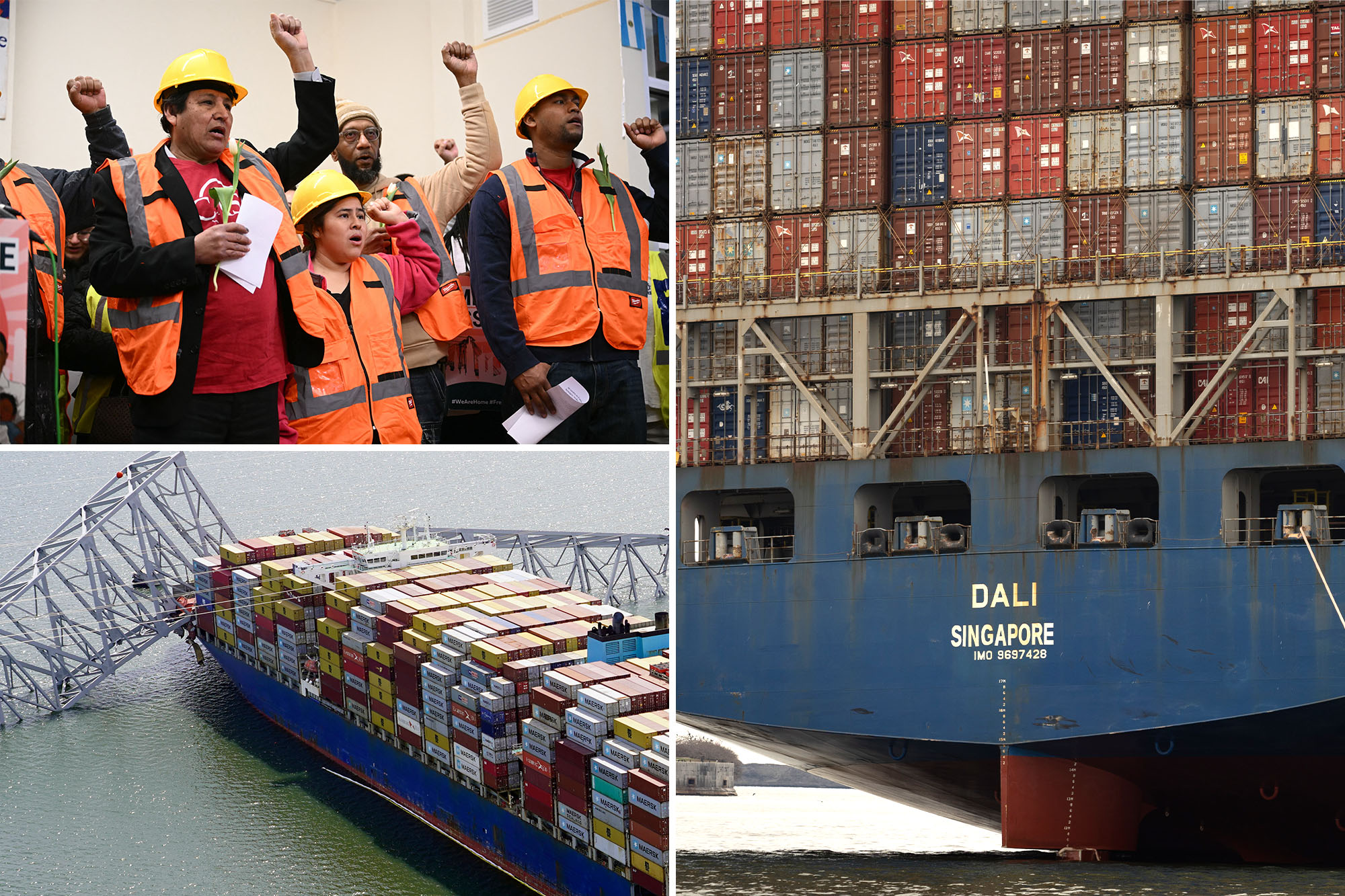
The owners and manager of the cargo ship that crashed into a Baltimore bridge last week and sent its metal frame tumbling into the river below have denied responsibility, as they tried to argue that they shouldn’t be held liable for amounts larger than the new value of the damaged vessel.
Singapore-based Grace Ocean Private Ltd., the owner of the Dali cargo ship, and Synergy Marine Pte Ltd., the ship’s manager, filed a petition in federal court on Monday denying any fault or neglect, according to the Baltimore Banner.
“The [bridge collapse] was not due to any fault, neglect, or want of care on the part of Petitioners, the Vessel, or any persons or entities for whose acts Petitioners may be held responsible,” the “limitation of liability” petition filed in the US District Court of Baltimore says, the Banner reports.
“Alternatively, if any such faults caused or contributed to the [bridge collapse], or to any loss or damage arising out of the Casualty, which is denied, such faults were occasioned and occurred without Petitioners’ privity or knowledge.”
The ship had reportedly lost power ahead of the collision with one of the support beams of the bridge, causing the crew to lose control.
The two companies also argued in the petition that liability costs should be capped at $43.6 million, which they say is the cost of the 984-foot-long vessel after the damage it sustained.
They claimed that before the ship set off from the Port of Baltimore last Tuesday, its value was about $90 million.
But they estimated that repairs to the ship will cost at least $28 million, salvage operations will cost at least $19.5 million and the freight costs are estimated to cost $1.1 million.
Those opposing limiting the companies’ liability must now prove there was some fault or neglect, according to the Banner.
If they are successful, the burden shifts to the ship owner to demonstrate that it did not have “privity or knowledge” of any issues.
But because six construction crew members were killed when the Francis Scott Key Bridge collapsed last week, the ship’s owner and manager must set aside money for those claims, Alexander Giles, a partner at Tydings and Rosenberg LLP told the Banner.
Those funds would amount to $420 per gross ton of the ship, which works out to about $39.95 million.
A federal court in Maryland will ultimately decide who is responsible for the fatal crash and how much they owe.
The collision is expected to be one of the costliest marine insured losses in history, a report from credit rating agency Morningstar DBRS predicts.
It estimates that the total insured loss would be between $2 billion and $4 billion.
The collapse of the Francis Scott Key Bridge effectively shut down operations at the Port of Baltimore, affecting about 8,000 jobs and about $2 million in wages, according to ABC 7.
Between $100 million to $200 million worth of trade passed through the port every day.
The cost to rebuild the collapsed bridge, meanwhile, will likely be at least $400 million, experts have said — but could be double that, depending on the new design.
The Biden administration has already approved $60 million in emergency federal aid to pay for the debris removal from the Patapsco River, it announced last week.
The president said in the aftermath of the disaster that he intended for the federal government to “pay for the entire cost of reconstructing that bridge, and I expect the Congress to support my effort,” Politico reports.
But it remains unclear whether members of Congress will support the plan.
In the meantime, Biden is expected to travel to Baltimore on Friday to survey the wreckage.
“The president is continuing to lead a whole-of-government approach to the collapse,” White House Press Secretary Karine Jean-Pierre announced Monday.
She added that Biden will continue to work with Maryland Gov. Wes Moore, the state’s congressional delegation and Baltimore Mayor Brandon Scott “to reopen the port, rebuild the bridge and support the people of Baltimore.”
With Post wires.














